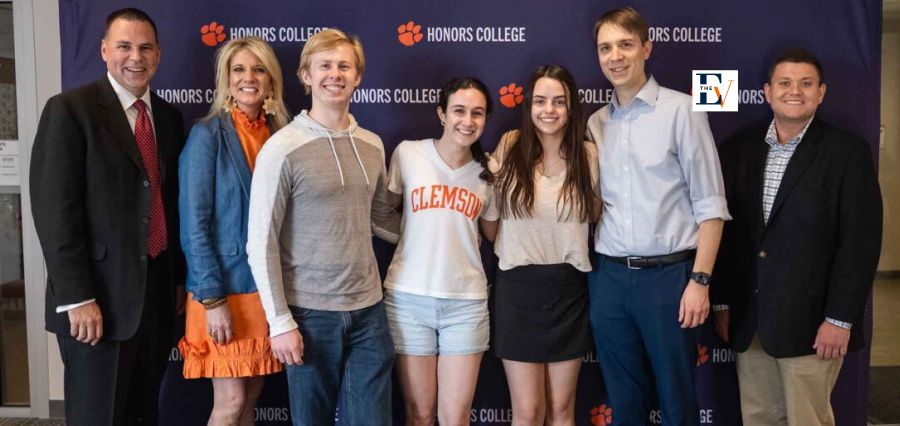A design for a mobile STEM academy toolkit, which provides resources, volunteer support, and community outreach to students in rural South Carolina schools, has earned three Clemson University Honors College students $1,000 each in a statewide competition.
Mercy Crapps, a National Scholar and biological sciences major from Tallahassee, Florida; Ryan Mehlem, a biochemistry major from Greenville, South Carolina; and Natalia Nortz, a biological sciences major from Fort Mill, South Carolina, collaborated to create the winning proposal. This initiative was part of the Pay It Forward program, sponsored by South Carolina’s Electric Cooperatives.
The program challenges students from Clemson University, South Carolina State University, or the University of South Carolina to propose solutions to pressing social and economic problems in rural areas. Students work in teams to develop solutions, presented as a research paper and video. Crapps, Mehlem, and Nortz won for their STEM education toolkit, designed to help teachers provide an experiential learning approach that complements textbook learning and computer simulations in the classroom.
Drawing from their own childhood experiences, the team recognized that hands-on learning tools could ignite a passion for STEM in middle school students. “I remember from my middle school experience, I was able to do some molecular biology practices and techniques which were exciting and interesting,” said Mehlem. “And now I work with those in my own research almost every day.”
Their research identified middle school as a critical period when experiential classroom learning could have the most significant impact. “In middle school, students decide what classes they want to focus on as they start to figure out their high school and post-graduation plans,” said Crapps. “It made me think about the learning experiences I had at that age which helped me decide to keep moving forward with science. So I thought, let’s bring this to as many communities as possible, specifically rural communities.”
Before developing their toolkit, they consulted with staff at several rural schools across the state. The resulting toolkit features STEM exercises that Clemson students can deliver, with volunteers periodically traveling to rural schools to facilitate these activities.
Read More: https://theeducationview.com/






